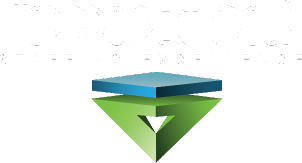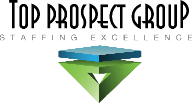We get it; you are impeccable at what you do. Whether you are a Network Engineer, Data Analytics, Security, or Developer, your proficient hard skillset makes you the best match for most job postings, which is actually great!
Undoubtedly, every company wants to hire the best person for the job! However, other skills play a significant role in your hiring process beyond hard skills, which are the primary benchmark for considering candidates.
Soft skills, as well known, may look insignificant, but it is the foundation for your success in any company and can set you apart from other employees.
85% of career success is attributed to well-developed soft and people skills. Only 15% of career success comes from hard skills, according to research carried out at Harvard University.
Now that you are an expert in your IT skills, let’s look at some soft skills you need if you are serious about getting hired or reaching your career peak. And oh, before I forget, sign up for our job alert emails to become the first few informed about a new job!
6+ Soft Skills You Shouldn’t Neglect When Job Hunting
Communication Skills
Communication skills are one of the most sought-after soft skills. The ability to communicate your thoughts clearly and concisely, process feedback, and make tangible negotiations and interactions in meetings and with team members can make a huge difference in your career growth. Communication is an everyday skill you’ll need in your workplace, except if you won’t be working in a team or interacting with stakeholders, which is impossible.
However, effective communication and active listening go hand in hand. Good communication and collaboration skills are heightened when actively listening to others and understanding their points.
Note: The first place employers start analyzing your communication skills is during the Interview stage. How you articulate your sentences and thoughts can show interviewers how strong your communication skills are.
Nevertheless, communication skills are not exclusive to speaking only. Writing, negotiation, interpersonal communication, and data interpretation are all part of communication skills.
Communication skills may not be the strongest flex for Information Technology experts, mainly if you write codes or analyze data for multiple hours, but the good news is that you can learn these skills.
Possible Interview Questions On Communication Skills
- How will you persuade people to buy into your line of thought?
- Tell me about a disagreement resolution you had with a past team member. How did you go about it?
- Give an example of how your communication skills helped you achieve a goal.
Team Work
No person is an island, especially if you are working with a company. Each team is united, and effective collaboration between team members contributes to its success in achieving its goals. Teamwork is about collaborating with other team members to foster cooperation and achieve specific goals.
Of course, no manager wants to spend half the day settling disputes when there is plenty of work. We also know that working with people can be painfully stressful.
In your career path, you’ll meet difficult team members that can be frustrating. Therefore, being able to keep your cool and manage difficult people to achieve your goals is mandatory for job employment and career success.
As an IT expert, equipping yourself to work with people from different races and orientations will be helpful in your daily work and career path.
Additional skills such as Conflict Management, Emotional Intelligence, Empathy, Listening, and Negotiation can help foster teamwork.
Possible Interview Questions On Teamwork Skills
- How do you feel working with a team?
- Has there been a time when your team failed to achieve a goal? What went wrong, and what was the experience like?
- Describe a group project you were involved in. What was your contribution, and how did you go about it?
- What contributes to the success of a team?
Problem-Solving
Problem-Solving, just as the name implies, is the ability to identify workplace problems, analyze them, and provide valuable solutions. Companies are constantly looking for people who can solve problems for their companies; that is one reason they seek to employ you.
Therefore, detecting and solving problems is a valuable skill that can significantly impact your career growth. Beyond being able to complete your work tasks, you also have to be quick in discerning problems when carrying out these tasks and providing swift, valuable solutions.
Problem-solving skills can be applied to various areas of a company, such as looking for patterns responsible for a decrease in revenue for the year, finding out why a particular website is not bringing in traffic, etc.
However, there are various skills necessary to have solid problem-solving skills. Skills such as
- Strong research skills (finding out the causes of the problem beyond the peripheral reasons)
- Analysis skills (being able to analyze the problem to bring out the best solutions
- Decision-making (Deciding on how to solve the problem and the best resources to use)
- Collaboration and communication skills (your ability to communicate the problem and possible solutions to other members)
Possible Interview Questions On Problem-Solving Skills
- Describe a time when you faced an unexpected problem without any managerial input. How did you go about it?
- How do you determine when to solve a problem alone or ask for help?
- How do you weigh the implications and advantages of a decision?
- Your team lead wanted to adjust X data and asked for your input. What was your response?
Time-Management Skill
Each task will require a series of smaller tasks to achieve high-quality work, and you will usually be given multiple tasks to work on at a time. Therefore, coming up with a solid time-management structure that allows you to work on various tasks and still come up with your best work without missing deadlines is paramount.
However, being able to manage your time will also rely on the ability to
- Prioritize your work depending on the deadline and importance,
- Organizing all the resources or tools, you’ll need to achieve those works,
- Breaking down and allocating time to each process,
- Delegating tasks if there is a need
- Setting up deadlines
- Build a working system
- Using organization tools to foster time management
Simple practices such as writing down to-do lists, using time-management tools, and delegating tasks can go a long way in managing your time better.
Without proper time management, it is easy to blur out the line between work and personal time, especially if you are working remotely. Also, the inability to manage time may portray you to your team as lazy or inefficient.
Possible Interview Questions On Time-Management Skills
- What is a typical workday like for you? Describe what you do in a day.
- How do you plan your time to avoid conflicting tasks or missing deadlines?
- How do you limit distractions?
- How do you balance your work and personal life?
- How do you manage deadlines?
Open-Mindedness & Adaptability
The workplace constantly evolves– new software, working strategies, and ideas are emerging daily. It can become hard to accept the changing trends and welcome new innovative ideas because of old information. An open-minded Information Technology expert will embrace new ideas from people and stakeholders without biases, compare them with their previous thought processes, and adopt good, innovative strategies.
In addition, adapting to different work environments and processes without too much friction is another skill recruiters are looking for.
Open-mindedness allows you to see problems and ideas from a different perspective, fosters collaboration amongst team members, and accepts changes. One of the ways to work towards being open-minded and adaptable is identifying residing biases when it comes to new ideas and working towards eliminating these biases.
Companies are always looking for open-minded individuals who are fearless in embracing new ideas, testing out novel methodologies, and finding innovative ways to launch the company forward.
Possible Interview Questions On Open-Mindedness & Adaptability Skills
- How often do you upskill or use new software?
- Can you adapt to different work environments?
- Share a time when you had to work on a new task. How did you go about it?
- Tell us when you were asked to do something outside your job description. How did you go about it?
- How would you help a recruit adjust to the company’s environment?
How To Develop These Soft Skills?
We’ve talked about five significant soft skills that can land you your next job as an IT expert. Although knowing this skill will help you take action, knowing the proper steps will speed up the process. Here are a few ways to kickstart your learning process.
Ask For Feedback
The best people to give you feedback about your soft skills level are team members who have worked with you. Asking your coworkers to analyze specific soft skills based on their interaction with you will reveal loopholes and give you a clear image of the soft skills you are strong at and those to work on.
Take Online Courses
There are many online courses on different soft skills. Find a good online course and dedicate time to completing it. However, beyond watching these online courses, try to practicalize the information learned in your workplace or daily life.
Practice Active Listening
If one of your goals is to improve your communication skills, then a simple and effective way to start the journey is by actively listening to others during conversations. Listen to what they are saying without interrupting, and you’ll be surprised at the details they are passing across directly or indirectly. By doing this, you will have a higher level of understanding and improve your communication.
Conclusion
Soft Skills are as critical as hard skills, and although they may not be as quantifiable as technical skills, they can make a huge difference in your employment process. Therefore, paying attention to your present soft skills, working towards perfecting them, and adding more important ones can make a huge difference.
However, one way to let your recruiters know you are proficient in these skills is by strategically highlighting them in your resumes and cover letters. Therefore, being able to craft a compelling and engaging resume will give you an edge.
The next step is showing them, through their interaction with you during the interview, that you are proficient in the skills listed. A classic example of establishing your credibility in soft skills is clear communication and meaningful answers to most if not all, interview questions. Therefore, when interviewing, ensure you are adequately prepared and ready to answer the interview questions confidently.
If you are looking for IT or Professional Industry work, be sure to contact us today at [email protected].






